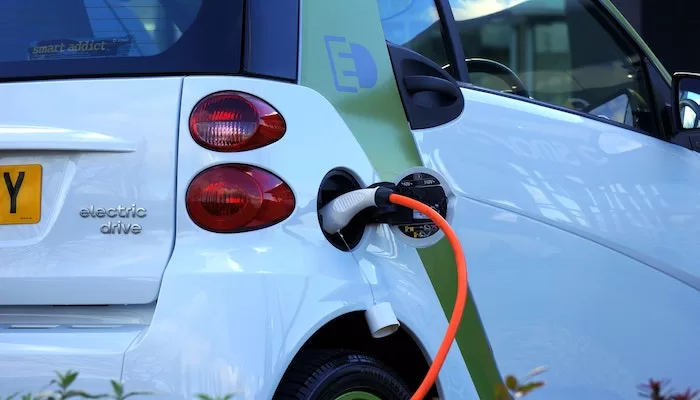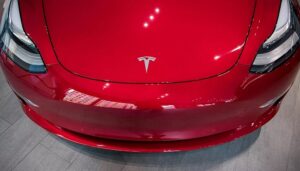Are Electric Cars Really Cheaper To Run Than Petrol Ones?

If electric cars had two key selling points, one would be zero emissions, and the other would be a reduction in fuel costs every week/month/year. That’s one of the big things electric car manufacturers are trying to sell you right now. Get an electric car, never pay for fuel, and save a boatload of money.
However, are electric cars actually cheaper to run than petrol ones?
Fuel is just one out of many ongoing costs a car owner faces. When you take other things into account, can you say for certain that an electric car is the cheaper option?
Fuel costs
Clearly, the cost of fuel – or gas – has risen quite substantially over the last year or so. But, there’s an interesting study from 2018 that already discovered a massive difference between fuel costs and electricity costs.
This study found that the average cost to charge an electric car was $485 per year, compared to $1,117 for filling up a gas tank. That’s a humungous difference and some really significant savings. Plus, the more you drive your vehicle, the more money you end up saving over time.
So, for the average person that may drive to work every day and use their car a lot, you will save money on fuel costs by switching to an electric vehicle.
Insurance & extended warranties
Car insurance or extended warranty plans will vary in price depending on the vehicle, the driver, and many other factors. You also have different providers, who will have their own rates. For context, let’s look at two extended warranty providers: CarShield and CARCHEX. The cost of CarShield is around $1559.88 per year, while CARCHEX can charge as much as $3066. Obviously, both providers have different coverage, and so on and so forth.
We can’t look at things like drivers or providers to make a fair comparison. What we can look at is the comparison between electric cars and petrol cars in terms of insurance costs right now. Currently, electric cars are slightly more expensive to insure. This is mainly because they will be more expensive than their petrol counterparts. Plus, insurance companies have decades of data on fuel cars and what’s likely to go wrong with them. Electric cars are still fairly new, so there’s less known about what might go wrong and how badly damaged they could be in accidents.

Source: Pexels
While insurance rates are dropping for electric cars, they are technically still more costly to insure right now.
Maintenance costs
When it comes to maintaining your car, you have plenty of things to consider when driving a petrol vehicle. Some of these things are still relevant to electric cars, such as tire pressure, tire tread depth, tire replacements, brake fluid checks, and windscreen wiper replacement.
Nevertheless, there are additional maintenance tasks with a petrol-powered vehicle. Primarily, you have to worry about the engine, transmission, oil levels, and all that jazz. This means there are more components that could break and way more issues that could arise with a traditional vehicle. So, the cost of repairing the car and paying for preventative maintenance is going to be higher.
This also translates into the costs of servicing your car. Electric cars and petrol cars need to be serviced at the same frequency. However, because electric cars don’t have internal combustion engines or complex transmissions, servicing them is a lot easier and faster. Thus, the cost of your annual service will be significantly cheaper.
In fact, there is some data to back these claims up! One report discovered that maintenance costs can be as much as 50% less when you own an electric car. That is absolutely staggering when you think about how much money you could save over the car’s lifespan. Funnily enough, that’s the perfect segway into the next point!
Longevity
Electric cars have not been around for long enough to know how truly durable they can be. Nevertheless, it is fair to assume that they will last longer than petrol vehicles based on the information above.
A car without an internal combustion engine and transmission will have less chance of breaking down. Do you know how easy it is to deteriorate your own vehicle just by your driving skills? If you’re constantly heavy on the clutch and making terrible gearshifts or revving your engine, you are going to cause irreparable damage over time. This means that you’ll need to purchase a new car a lot sooner than expected, which increases the overall cost of your vehicle.
Meanwhile, electric cars are in a fantastic position to go for as long as possible. Sure, the battery could become less efficient over time, but a simple replacement should be all that’s needed to keep the car going for longer and longer. You don’t have to worry about the transmission going or there being an issue with the internal components of a complex internal combustion engine.
Other aspects of electric cars are more durable too. For instance, braking systems are a lot more efficient because electric vehicles use something called regenerative braking. In short, this technology uses the electric motor to activate the brakes and then converts energy from braking back into electricity to charge the battery. As a result, you can be easier on the brakes and prevent them from deteriorating in comparison to traditional petrol vehicles.
As we said, EVs haven’t been around long enough to draw up a proper comparison in terms of longevity. But, based on the information we have, it’s fair to say they could last longer, meaning they need to be replaced less frequently.
Conclusion: Electric vehicles are more affordable…just!
In conclusion, EVs do have lower running costs than petrol-powered vehicles. They are considerably cheaper to maintain, cheaper to refuel, and will last for longer. The only caveat is that buying an EV is more expensive right now, so if you finance your car you will pay more each month. Plus, insurance can also be more costly at the moment.
When you add everything up, EVs will still end up being more affordable over the course of a year – but it’s closer than you think!















